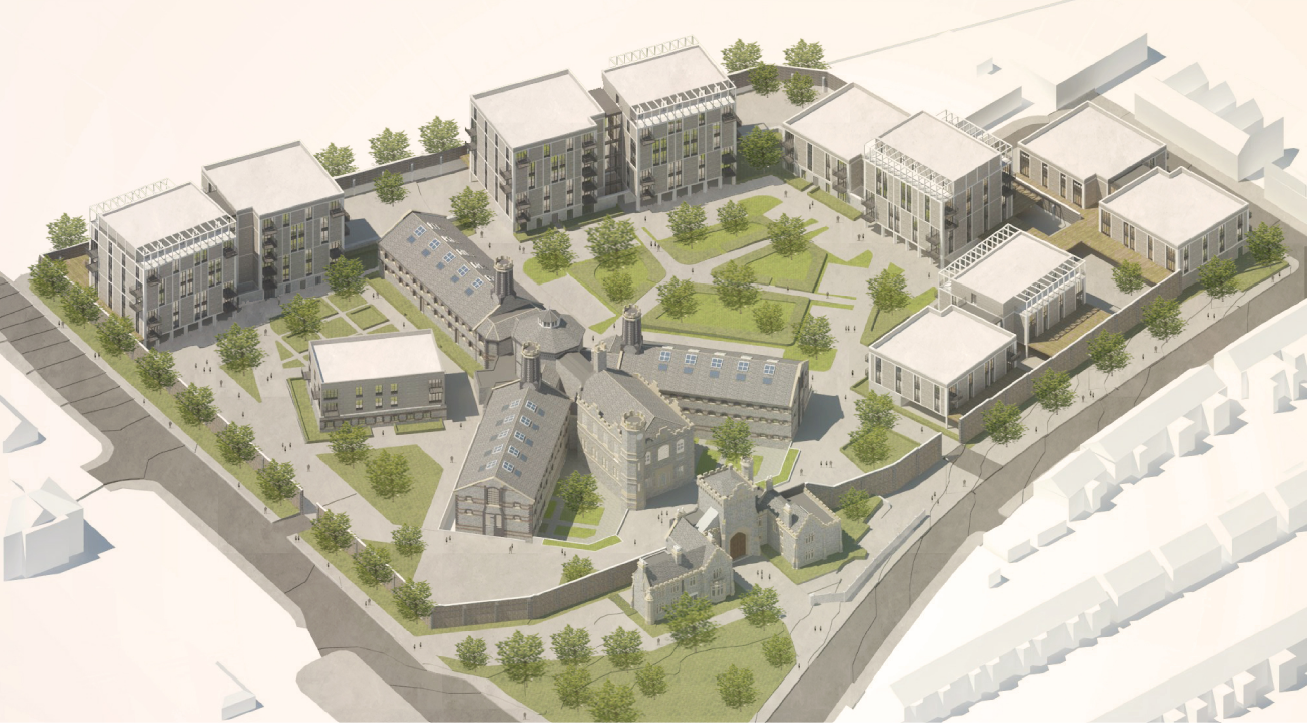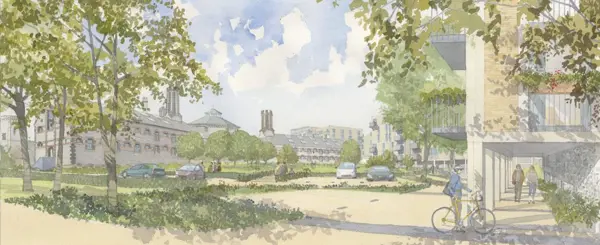Behind bars, banged up, in the slammer. One place we can probably all agree we
don’t want to spend time is in prison. However, house hunters in Portsmouth will be clamouring to be ‘inside’ the city’s former jail, once it is transformed to provide new homes, a series of gardens and a café.
NLP is pleased to have helped to secure a committee resolution to grant full planning permission and listed building consent for the re-use and development of the former Kingston Prison in Portsmouth. The project will provide 230 flats in the centre of the city, ensuring the impressive Victorian building will be retained, maintained and enjoyed for generations to come.
Specialist heritage developers
City & Country acquired Kingston Prison following its closure in 2013. Kingston was the last of 19 radial plan prisons that were built in the UK between 1842 and 1877. The prison has four wings that extend from a central rotunda, as well as other outbuildings and an additional wing that were added in the 20
th century. The site is enclosed by a formidable three metre-high flint wall.
NLP worked within a multi-disciplinary team which was proactively led by City & Country and included architects
Feilden Clegg Bradley Studios. The team was tasked with identifying a viable and sustainable way of bringing the site back into use. One of the key planning issues to overcome was that the principal prison building, perimeter wall, engineers’ workshop and gatehouse are Grade II listed. As such, the development proposals needed to be sensitive to these heritage assets. A successful scheme was devised that respects the heritage of the building, while creating a modern, liveable environment that is viable to deliver.
While some unattractive outbuildings and the more modern extra wing are to be demolished, the main building is to be converted to apartments and five new residential blocks are to be provided within the historic walls. As well as providing new homes in Portsmouth, the prison site will be transformed to create a series of gardens that respond to the strong radial geometry of the buildings, with an additional entrance to be built into the imposing perimeter wall to allow the public to explore this historic site for the first time.
The project included full engagement with Portsmouth City Council, together with several well-attended public consultation events. It also involved the preparation of numerous technical reports to accompany the application.

The redevelopment of Kingston Prison is part of a first wave of exciting transformations of former prisons. With the government
signalling its intention to close and sell-off further prisons, there may well be more opportunities on the horizon for local authorities and developers to provide new housing on prime urban land. The proposed redevelopment of Kingston Prison demonstrates that these often austere buildings can be transformed into vibrant, attractive and sustainable developments that can ensure the continued use and enjoyment of historic buildings into the future.
It would be a crime if these opportunities were not taken.



